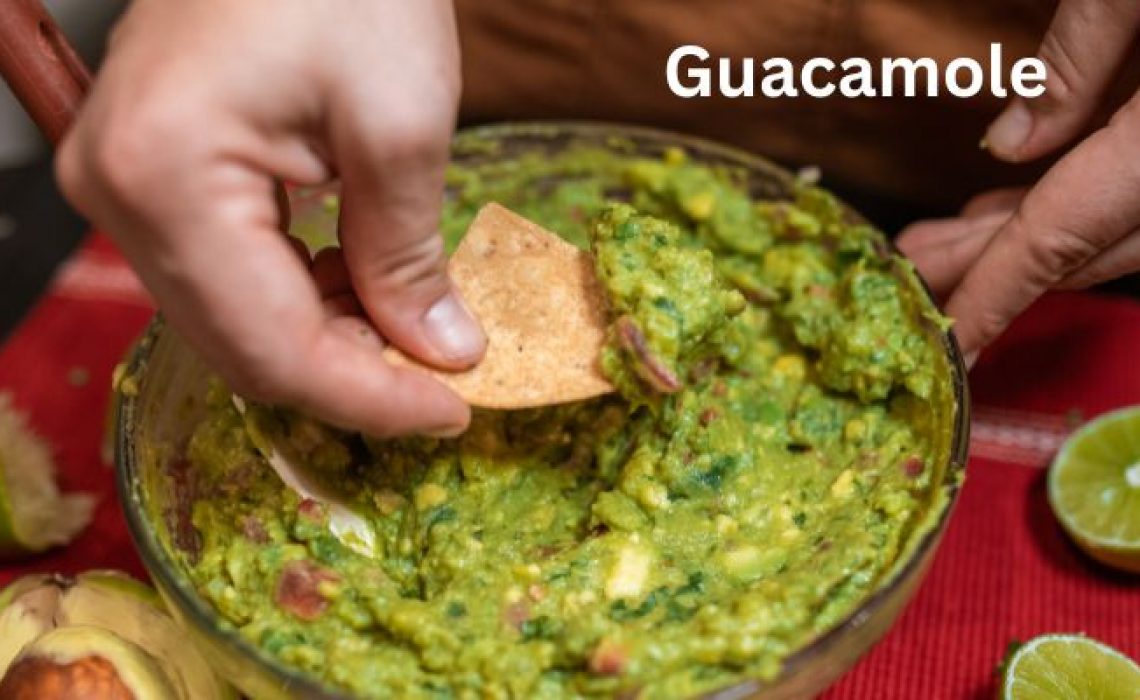Guacamole is a sauce, spread or salad made from avocado. It was first developed in Mexico and has not only been used in modern Mexican cuisine but has also become part of international cuisine as a dipping material. Spices and Salads
Guacamole. Dip tortillas in it, add it to tacos and garnish quesadillas with it. But is it good for you? In other words, yes, guacamole has many health benefits. Read about its health benefits, what to look out for and how best to eat it.
Table of Contents
ToggleWhat is guacamole?
Depending on who you talk to and where you get your guacamole, you’ll have a very different idea of what’s in it. The simple recipe is avocado, a little lime juice and salt. Other ingredients include cilantro, lettuce, tomatoes and jalapeno. You can get creative with roasted garlic or add parsley for a super light and easy version. No matter how you cook, you get more health benefits from eating avocado than guacamole.
Nutrition fact
A serving of guacamole is small, as a typical serving of avocado is only one-third of the entire fruit. A healthy serving of guacamole is 2 tbsp to 1/4 cup.
Here is the nutritional value of one cup of guacamole:
- Calories – 10-grams
- Fat – 10-grams
- Saturated fat – 1-grams
- unsaturated fat -1-grams
- Mono fat – 6-5-grams
- Poly fat – 1.2-grams
- Carbs – 6-grams
- Sodium – 165mg
- Fibre – 165mg
- potassium – 10% Daily Value
Bananas are high in healthy fats, but they are still high in fat and can quickly turn into calories if eaten in excess. Some guacamole recipes are also high in salt content and can be a hidden source of sodium.
Is guacamole healthy?
With all the vitamins, fibre, and healthy fats in avocados, it’s hard to imagine guacamole not being good.
But it’s essential to be careful what you eat with guacamole. Guacamole is usually served as a snack, maybe you want chips. It is also a common topping on tacos, which contain fatty meats and tons of sodium, all wrapped in a corn tortilla. These foods can quickly add calories, as well as extra carbs, unhealthy fats and preservatives.
Like everything, moderation is key. It can be healthy, but overeating fast food with too much guacamole can harm your health and weight.
The average person eats seven pounds of avocado a year. In comparison, most people consume an average of 131 pounds of sugar each year. If you gain weight, It may not be the cause. On the other hand, you consume more junk food. (1)
Is guacamole good for weight loss?
It is also an excellent weight-loss food. The fat content of avocados can be a problem if you eat too much of them, but the high fibre content helps keep you full until your next meal. Fibre-rich foods promote weight loss and control and lower cholesterol, blood pressure, blood sugar, and inflammation.
Health benefits of guacamole
It’s good for your heart
“The fibre and healthy fats in avocados improve cholesterol, making guacamole a healthy snack or condiment,” said Kim Marachovar, MS, RD, L. Avocados contain monounsaturated fats, especially guacamole, oleic acid. Higher numbers mean lower costs. Lowering levels of inflammation (a risk factor for heart disease), lowering LDL cholesterol (called the “bad” cholesterol), and reducing the risk of heart disease. The study also found that eating an avocado a day significantly reduced LDL cholesterol over a five-week period. A review of 18 studies found that avocado consumption increases HDL (“good”) cholesterol, which lowers the risk of overall heart disease.
They can help regulate blood sugar levels
Several studies have shown that replacing avocados with vitamin-rich foods improves blood sugar control. According to Murachavar, guacamole can be beneficial for people with diabetes or prediabetes. Fibre and fat slow digestion and help regulate blood sugar. “When the healthy fats in guacamole are mixed with carbohydrates, they can cause the blood sugar spikes that often occur when I eat carbohydrates alone,” says Murchavar. That’s why guacamole is a great addition to sandwiches, toast, or other high-carb dishes.
Could help during pregnancy
Avocados have two important nutrients for pregnant women: potassium and folic acid. It also contains fibre. It is unsaturated, highly nutritious and contains antioxidants that are closely related to maternal health, better supply and quality of breast milk.
Conclusion
Guacamole can be used as part of a healthy diet and is a great way to add health-promoting nutrients like monounsaturated fats, fibre, folic acid, and potassium. Because it’s a high-calorie food, you can combine it with other healthy foods to get the most out of your meal.









